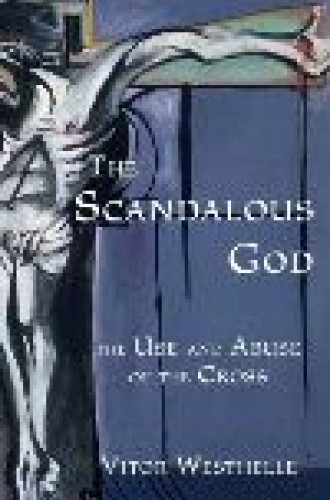The Scandalous God
American media consumers are fed such a steady diet of scandal that it’s hard to imagine anything being universally considered scandalous anymore. The church, too, is well practiced in the art of domesticating scandal, especially the disturbing news of a crucified Savior.
So argues Vítor Westhelle, who wants to make the scandal of the cross both shocking and transformative once more. Westhelle, professor of systematic theology at the Lutheran School of Theology in Chicago and formerly a minister and professor in his native Brazil, demonstrates a vibrant mix of Lutheran, Latin American and liberationist sensibilities.
He has two main foci. In his first four chapters he offers a historical summary of the cross motif and of attempts at its domestication. The last six chapters are thematic, exploring the implications of a theologia crucis for various contemporary concerns. The book’s strengths and weaknesses roughly correspond to this division.
Westhelle is most helpful as he traces how the church, from its earliest years through today, has sought to evade the brute fact that the cross was both divinely intended and revelatory. How could God die? And such a scandalous, ignoble death! Inherited assumptions and imported frameworks are predisposed to explain the cross by explaining it away, by interpreting it as an unintended if perhaps also unavoidable consequence of some other, more noble divine activity. The ancient heresies of Docetism and Ebionism sought to evade the scandal by using logic that is, Westhelle claims, echoed in some modern liberal and feminist theologies.
Current debates over the presumed violence of vicarious atonement and the call to replace it with nonviolent theories exemplify such evasion. Proponents of the latter kind of theory typically claim that God did not will the violence of the cross or use it to effect reconciliation—that the violence was merely the consequence of Jesus’ prophetic refusal to back down before worldly power.
To Westhelle’s mind, such efforts to maintain God’s blamelessness effectively shield God from involvement in pain and death. For the dispossessed of the world, to claim that God has not intentionally embraced suffering and death implies that they are Godforsaken and beyond redemption. Yet Jesus’ life and ministry are nothing if not a reversal of the world’s expectations and values: born in lowliness, serving the marginalized, proclaiming the last first and the first last as a sign of the eschatological in-breaking of God’s reign. In the trajectory of this paradoxical logic, Christ’s crucifixion becomes “the really privileged place where apocalypse happens.” God is powerful enough to surrender all power: this is the subversive message of the cross, which is foolishness to those who are perishing but God’s true strength to those who are being saved.
Westhelle writes evocatively, aware that he is dealing with a subject that must not be pinned down. Being too precise would be another form of domestication. Here, too, he echoes Luther’s rejection of worldly philosophy, with its allure of systematization, sublimation and control. The distinctiveness of theological discourse—in contrast to the semantic realms of earthly regimes—is that it “is closer to poetry than philosophy; it invests itself more in rhetoric than logic.”
True to this description, Westhelle’s style is dynamic and varied. He is engaging in typical academic theology one moment and quoting Brazilian poets the next; apparently undercutting “left-wing” theologians one moment, drawing on Foucault the next; citing a 17th-century Mexican nun one moment, Alice Walker’s Celie the next, and then—in rapid succession—Jan Patocka (a Czech dissident who died under police interrogation), Wendell Berry and Rainer Maria Rilke.
Often this impressionistic approach reveals unexpected and eye-opening juxtapositions. At other times it simply seems disjointed. In the latter part of the book Westhelle falls into a trap that he says a theology of the cross should prevent: excessive abstraction. For example, in the chapter “Cross and Eschatology,” he insists that faithfulness to the biblical witness requires us to grasp how space and time are understood in scripture—but rather than turning to concrete exegesis, he braids his exposition together with ideas from the works of two novelists, Tillich, a seminary student, Anthony Giddens, Tzvetan Todorov, Karl Löwith, Hegel, Schleiermacher, Mircea Eliade, Rudolf Bultmann and others. The upshot? Westhelle gets far too caught up in the arcane preoccupations of certain intellectual circles. Yet flashes of insight continue. Westhelle does not so much build an argument as he strips arguments away so that readers may be scandalized into seeing again.





